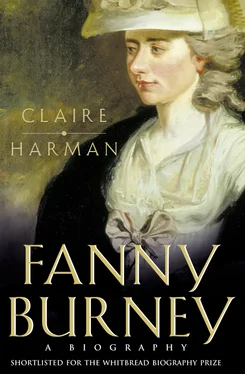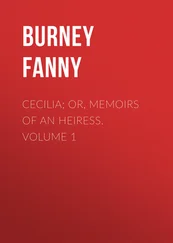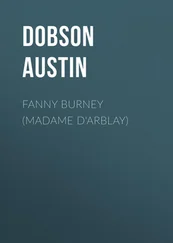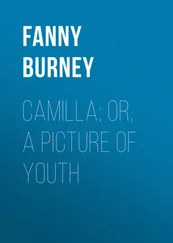Her reading, as suggested by entries in her early diaries, 31 was heavily weighted towards works of moral instruction, sermons, standard histories, poetry and the ‘female conduct books’ which were deemed an essential part of a young woman’s mental baggage. One of the most popular and influential of the conduct-book writers was James Fordyce, whose Sermons to Young Women Fanny knew well. * Fordyce asserted the authority of his sex with confidence: ‘Men […] are in general better judges than women, of the deportment of women’, 32 while its moral inferiority was also acknowledged: ‘The world, I know not how, overlooks in our sex a thousand irregularities, which it never forgives in yours’. 33 The disturbing sexual power of women could only, in Fordyce’s view, be put to proper use as an inducement to and reward for good male behaviour. A roomful of riotous men, he asserted, could be ‘checked all at once into decency’ by the accidental entrance of a virtuous woman. 34 Restraint was the key to proper female conduct: wit, in women, ‘is commonly looked upon with a suspicious eye’, and ‘war, commerce, politics, exercises of strength & dexterity, abstract philosophy & all the abstruser sciences, are most properly the province of men’. 35 This left little for women to do (besides entering rooms virtuously) other than going astray, the irreparable personal disaster which opened the way to widespread social disintegration.
Because Fanny had no one with whom to discuss her reading or to guide it, and because her veneration for the written word was intense, the messages of authors such as Fordyce impressed her very strongly, reinforcing an already anxious and conservative nature. Their severity appealed to the neglected child, whose ‘straightforward morality’, in her father’s opinion, had ‘wanted no teaching’. 36 At this impressionable age, and unguided, she assumed a set of standards which proved a constant agitation to her natural morality. She assented to the conventional view, as articulated by Fordyce, of the superior authority of the male sex, although her common sense and sense of justice often told her otherwise. For example, reading the Iliad , aged sixteen, she found herself ‘provoked […] for the honour of the sex’:
Venus tempts Hellen with every delusion in favour of her Darling, – in vain – Riches – power – honour – Love – all in vain – the enraged Deity threatens to deprive her of her own beauty, & render her to the level with the most common of her sex – blushing & trembling – Hellen immediately yields her Hand.
Thus has Homer proved his opinion of our poor sex – that the Love of Beauty is our most prevailing passion. It really grieves me to think that there certainly must be reason for the insignificant opinion the greatest men have of Women – At least I fear there must. – But I don’t in fact believe it – thank God! 37
The poet – not just a man, but a truly ‘ great man’ – had to be right: but wasn’t. ‘Fear’ and ‘belief’ contradicted one another, and the only way Fanny could resolve the problem was by sticking to the evidence of her own experience. She lost no opportunity in her books to expose the disadvantages under which her own sex laboured, but did so, characteristically, through realistic representation of women rather than by direct criticism of men. Modern readers can’t help interpreting her works as feminist, but Fanny Burney herself would have been shocked and distressed to have been associated with anything so subversive. In the fight between duty and justice, duty was always going to win. A person such as her father, who embodied her primary duty, thus became an idealised figure, incapable of doing wrong – even though she knew he did act wrongly sometimes. It was a paradox that affected her profoundly, creating tensions in her writing which provide much of her works’ interest, but which ultimately may have inhibited her from becoming a great artist.
Fanny Burney’s attitude to novels and novel-writing reflects the same anxieties. She never completely outgrew her poor opinion of the form, derived from the views of old-fashioned moralists such as Fordyce (who thought that novels ‘carry on their very forehead the mark of the beast’). She projected onto her father the same strict tastes. Novels were not banned in the liberal Burney household; as well as Richardson and Fielding, Fanny had read Sterne (although she pityingly called him ‘poor Sterne’) and many other works which Fordyce would have abominated. The house was full of reading-matter quite apart from the mostly musical and classical texts in Charles Burney’s library, and lack of supervision meant that while Fanny read much more demanding books than most ‘educated’ young ladies would have encountered, she also read a great deal more ‘low-grade’ literature, and knew many risqué works, such as Swift’s ‘The Lady’s Dressing Room’, well enough to parody them. 38 The sort of literature she enjoyed and the sort of literature she felt ‘allowed’ to write were not the same thing at all.
When she tried to amalgamate entertainment with moral instruction in her own work, the results were patchy. In Evelina , which was published anonymously, the attempt was successful because Burney felt free to make her heroine mildly fallible, and open to moral improvement; in the later books, when she had to own authorship, her heroines represented pure virtue under attack – a very much less dramatic or entertaining formula. Clearly, the only way Fanny Burney could justify to herself her own persistent interest in writing fiction (and her last novel, The Wanderer , though her least satisfactory, is probably the most ambitious) was by stressing its moral purpose. ‘If many turn aside from all but mere entertainment presented under this form’, she wrote in the dedication to The Wanderer , ‘many, also, may, unconsciously, be allured by it into reading the severest truths, who would not even open any work of a graver denomination’. 39
Fanny’s juvenilia seems to have been mostly of a ‘grave denomination’: ‘Elegies, Odes, Plays, Songs, Stories, Farces, – nay, Tragedies and Epic Poems, every scrap of white paper that could be seized upon without question or notice’. 40 It was an obsessive, absorbing pleasure which she kept secret, convinced ‘that what she scribbled, if seen, would but expose her to ridicule’. 41 Her ‘writing passion’ 42 was partly a response to loneliness, partly, as is evident from the astonishing diversity of the forms she tried, a form of interaction with the authors she read and admired. The extent of that interaction was very unusual. As an old woman, Fanny described to her younger sister Charlotte how she got by heart one of William Mason’s poems by ‘repeating it, in the dead of sleepless Nights, so often, so collectedly, so all to myself , that I believe I must have caught every possible meaning of the Poet, not only in every sentiment, but in the appropriation of every word, so as to be able to pronounce as I conceive him to have thought, […] entering into the Poem as if it had been the production of my own brain’. 43 This describes something more akin to a form of ecstatic spiritual communion than to what we normally understand by reading . Her use of the word ‘appropriation’ seems particularly apt.
In her early teenage years, Fanny had plenty of time in which to indulge her ‘writing passion’, and a safe place, her ‘bureau’, in which to lock her works away. This was not a piece of furniture, but a closet in the Poland Street bedroom, the only part of the house which was inviolably hers. Even as a forty-year-old, Fanny was expected to share a bedroom with her half-sister, and it is unlikely that she ever had a room of her own before her marriage, except at Mrs Thrale’s in the late 1770s and at court in the late 1780s. It is clear from the early diaries that as an adolescent Fanny stayed up at night writing or reading until the candle ran out, with her sisters asleep nearby. 44 There was nothing casual about these secretive literary pursuits ‘in the dead of sleepless Nights’. By Fanny’s mid-teens, the stack of compositions in the ‘bureau’ included at least one full-length novel.
Читать дальше












